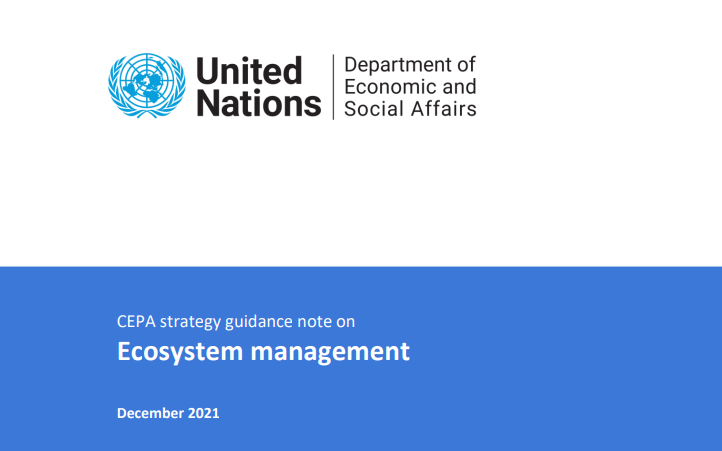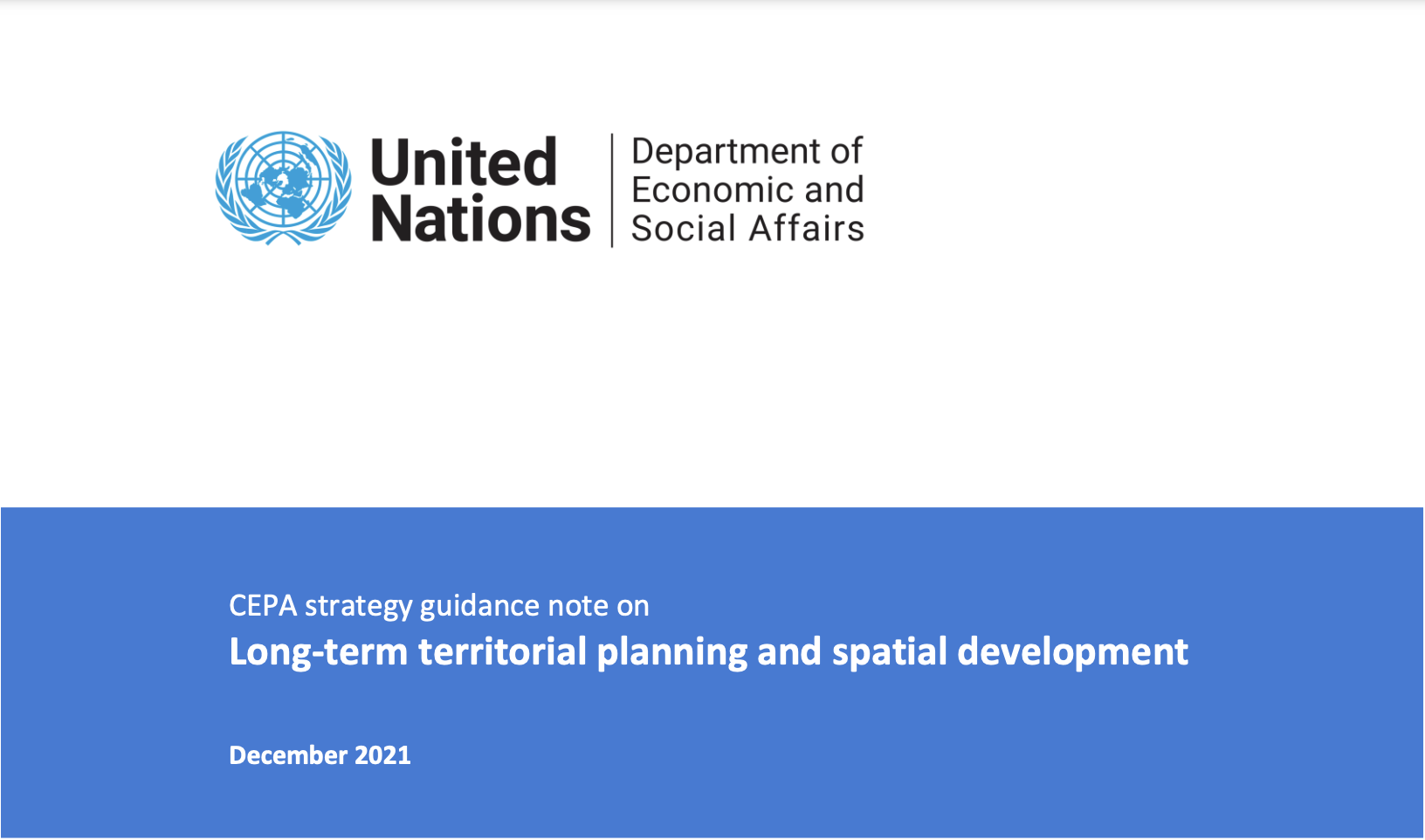| Policy Briefs | Digital Government
UN/DESA Policy Brief #123: Sandboxing and Experimenting Digital Technologies for Sustainable Development
From innovation hubs and policy experiments to regulatory sandboxes
Digital technologies carry a promise to fast track sustainable development by supporting innovative, forwarding-looking policies and digital government solutions. There are,…
| CEPA Strategy Guidance Notes | Principles of Effective Governance
CEPA strategy guidance note on ecosystem management
Ecosystem management involves using ecological knowledge about a particular ecosystem’s structure and function to achieve a desired set of objectives. By setting and working toward appropriate objectives that are grounded in sustainability,…
| CEPA Strategy Guidance Notes | Principles of Effective Governance
CEPA strategy guidance note on long-term territotial planning and spatial development
In reading this guidance note, individuals in government ministries and agencies who are less familiar with the topic will be able to understand the fundamentals. Those who have perhaps taken initial steps in this area with limited follow-through or…
| CEPA Strategy Guidance Notes | Principles of Effective Governance
CEPA strategy guidance note on impact assessment for sustainable development
Impact assessment is a structured process for considering the implications of proposed actions for people, communities and the environment, while there is still an opportunity to improve (or, if appropriate, abandon) the proposals.
| CEPA Strategy Guidance Notes | Principles of Effective Governance
CEPA strategy guidance note on fiscal and budget transparency
Fiscal transparency provides oversight institutions including parliaments, supreme audit institutions, and the public with the information they need to hold governments accountable in their management and use of public resources.
| Policy Briefs
UN/DESA Policy Brief #117: Building the Capacities of Public Servants to Implement the 2030 Agenda
The 2030 Agenda recognizes that capacity in governments at all levels is critical to steer and support the transformations which it calls for. Thus, public servants at all levels of government need the capacity to successfully implement, follow up…
| Policy Briefs | Public Institutions
UN/DESA Policy Brief #116: A view of Changes in Institutional Arrangements for SDG Implementation at the National Level Since 2015
Five years after the adoption of the 2030 Agenda for Sustainable Development, with one third of the implementation period of its 17 Sustainable Development Goals having elapsed, it is important to take stock of relevant institutional arrangements at…
| Policy Briefs | Local Governance | Public Institutions
UN/DESA Policy Brief #115: Horizontal and vertical integration are more necessary than ever for COVID-19 recovery and SDG implementation
Horizontal and vertical integration are more necessary than ever for COVID-19 recovery and SDG implementation
Summary
By putting stress on national socio-economic systems, the COVID-19 pandemic has exposed new tensions and trade-offs among policy…
| Policy Briefs | Participation and Accountability | Public Institutions
UN/DESA Policy Brief #114: Connecting the Dots: The Still Elusive Synergies Between Accountability Institutions and the Follow-up and Review of the Sustainable Development Goals
The 2030 Agenda highlights the importance of the follow-up and review of the Sustainable Development Goals (SDGs) as an accountability mechanism and sets clear principles to guide it. Accountability institutions such as parliaments and supreme audit…
| CEPA Strategy Guidance Notes | Principles of Effective Governance
CEPA strategy guidance note on strengthening of national statistical systems
The United Nations Committee of Experts on Public Administration (CEPA) has developed a set of principles of effective governance for sustainable development. The essential purpose of these voluntary principles is to provide interested countries…
| CEPA Strategy Guidance Notes | Sound Policymaking | Principles of Effective Governance
CEPA strategy guidance note on promotion of coherent policymaking
The United Nations Committee of Experts on Public Administration (CEPA) has developed a set of principles of effective governance for sustainable development. The essential purpose of these voluntary principles is to provide interested countries…
| CEPA Strategy Guidance Notes | Principles of Effective Governance
CEPA strategy guidance note on data sharing
Having access to reliable, accurate public-sector data is crucial for sound policymaking. Accurate data helps to answer fundamental questions on selecting proper actions, to realize intended outcomes and to achieve the overall effectiveness…
 Welcome to the United Nations
Welcome to the United Nations







